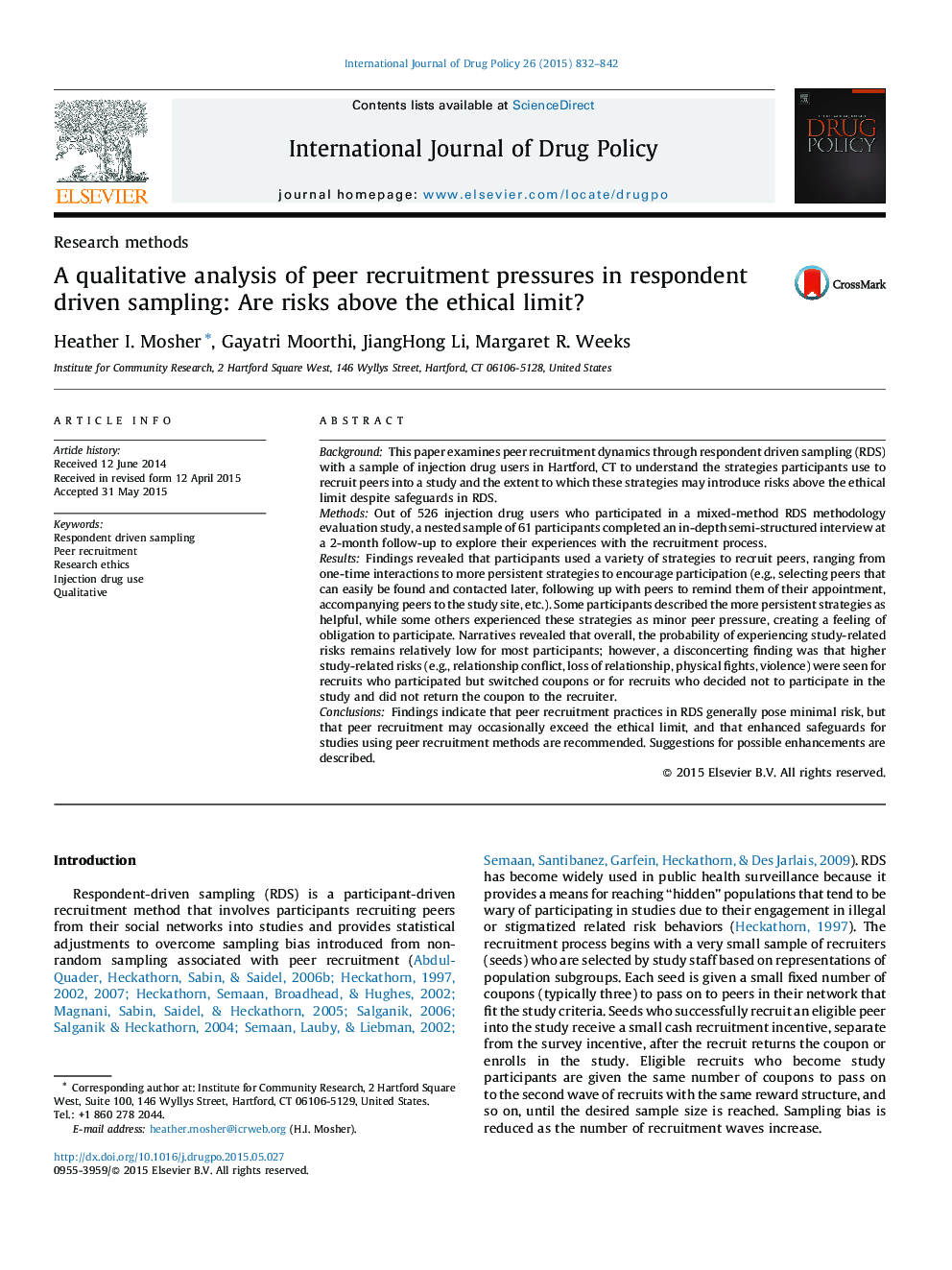| کد مقاله | کد نشریه | سال انتشار | مقاله انگلیسی | نسخه تمام متن |
|---|---|---|---|---|
| 1075215 | 1486282 | 2015 | 11 صفحه PDF | دانلود رایگان |
• Current RDS safeguards may not be enough to protect against peer coercion.
• Participants use a variety of strategies to recruit peers.
• Some peer recruitment strategies increase the probability of greater risks.
• Magnitude of potential harm exceeds the ethical limit under certain conditions.
BackgroundThis paper examines peer recruitment dynamics through respondent driven sampling (RDS) with a sample of injection drug users in Hartford, CT to understand the strategies participants use to recruit peers into a study and the extent to which these strategies may introduce risks above the ethical limit despite safeguards in RDS.MethodsOut of 526 injection drug users who participated in a mixed-method RDS methodology evaluation study, a nested sample of 61 participants completed an in-depth semi-structured interview at a 2-month follow-up to explore their experiences with the recruitment process.ResultsFindings revealed that participants used a variety of strategies to recruit peers, ranging from one-time interactions to more persistent strategies to encourage participation (e.g., selecting peers that can easily be found and contacted later, following up with peers to remind them of their appointment, accompanying peers to the study site, etc.). Some participants described the more persistent strategies as helpful, while some others experienced these strategies as minor peer pressure, creating a feeling of obligation to participate. Narratives revealed that overall, the probability of experiencing study-related risks remains relatively low for most participants; however, a disconcerting finding was that higher study-related risks (e.g., relationship conflict, loss of relationship, physical fights, violence) were seen for recruits who participated but switched coupons or for recruits who decided not to participate in the study and did not return the coupon to the recruiter.ConclusionsFindings indicate that peer recruitment practices in RDS generally pose minimal risk, but that peer recruitment may occasionally exceed the ethical limit, and that enhanced safeguards for studies using peer recruitment methods are recommended. Suggestions for possible enhancements are described.
Journal: International Journal of Drug Policy - Volume 26, Issue 9, September 2015, Pages 832–842
